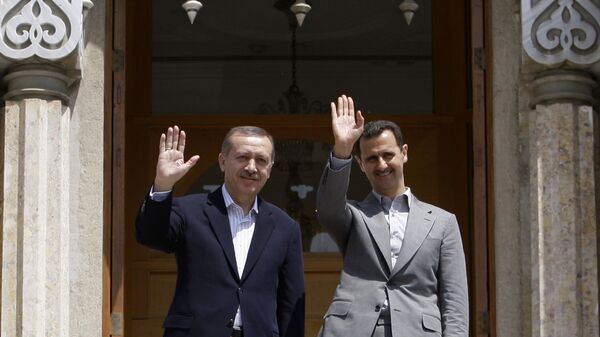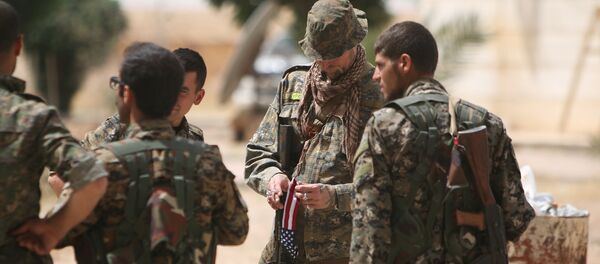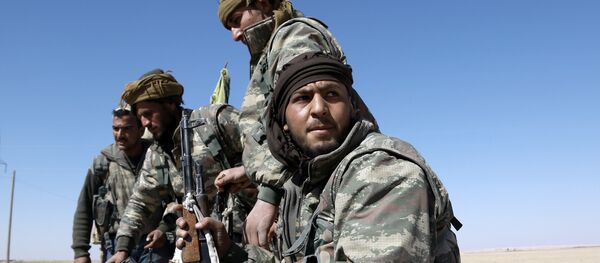As preparations for the liberation of Daesh's Syrian capital of Raqqa continue, many observers are becoming increasingly anxious as to what the next stage of Kurdish-US cooperation will be, and whether Washington may attempt to use the Kurds as a tool to dismember Syria.
Ismail Hakki Pekin, former head of the intelligence department of the Turkish General Staff, told the news agency that the US plan for Syria was clear: "to turn Syria into a federation and include the Kurds in this federation."
"Meanwhile," the retired officer noted, "Russia has deployed its forces in Afrin to monitor compliance with the ceasefire regime. With this step, Russia is trying to keep the Afrin an integral part of a unified Syria."
Accordingly, Pekin suggested, "the main issue for Ankara is cooperation with Syria. If Turkey, having established contacts with the Syrian leadership, proves able to conduct a balanced policy in relations with both the US and Russia, the creation of an autonomous Kurdish region in northern Syria will become extremely difficult," Washington's plans notwithstanding.
Asked about the strength of the Turkish factor in preventing an autonomous or independent Kurdistan in the war-torn country, Pekin emphasized that Turkey's main trump card is cooperation with Russia, Syria and Iran.
"If Ankara can rid itself of its ideological blinders, and take advantage of this resource, we can rest assured that it won't allow the US to implement its plans to create a Kurdish state. At the very least, this will allow Ankara to gain time. Then the problem can be resolved quite simply – by providing a certain degree of autonomy to local authorities." Ultimately, Pekin warned that if Ankara fails to take advantage of the opportunity for partnership with Moscow and Tehran, and with Damascus, "it will be on the losing side."
Turkey's official position, Conkar recalled, is that the YPG People's Protection Units and the Democratic Union Party are terrorist organizations. "From this perspective, it is impossible to think about any NATO member country securing the autonomy or creating a state for organizations recognized [by other NATO members] as terrorist organizations."
The lawmaker emphasized that the issue of the Syrian Kurds' in Syria's future must "be resolved by the Syrian leadership, in the framework of the discussions on the constitutional system, after settling the crisis facing the country."
"The US goal is to support cooperation with the Democratic Union Party (PYD) and the PKK, and to create a corridor under the PYD," he said. "However, operation Euphrates Shield has created a barrier to this. Turkey will defend its interests in matters of national security, and will not give its consent to the formation of such a territory. Turkey must prevent this, both from the perspective of its own national security, and from the perspective on Syria's territorial integrity."
"The US have been trying to divide Syria from the very beginning," Mustafa suggested. "This is an American project. We, Syrian Turkmen, are against this. Syria's territorial integrity must be preserved. In addition, it must be the Syrians themselves, not external forces, who decide the form of government in the country. The Syrian people must decide whether there will be a federal form of government, or some other form."





